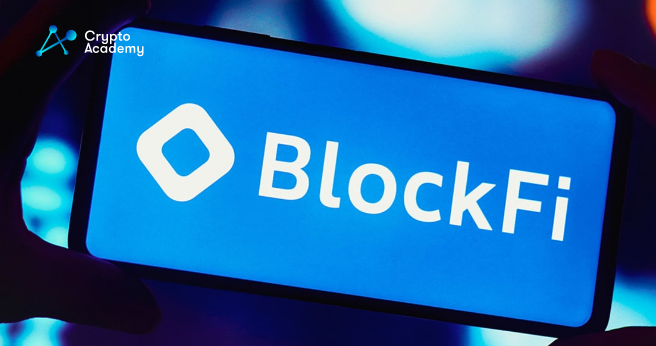BlockFi is not in immediate danger despite its $200 million exposure to Silicon Valley Bank (SVB), according to its lawyer.
On March 10, California’s financial regulator shut down Silicon Valley Bank, a major financial institution that caters to venture-backed companies. The shutdown makes it the first Federal Deposit Insurance Corporation-insured bank to fail in 2023.
BlockFi, a crypto lending firm, had reportedly invested $227 million of uninsured funds in a money market mutual fund (MMMF) offered by Silicon Valley Bank (SVB). However, SVB does not manage the fund, as per the latest bankruptcy filing. This comes after the recent closure of SVB by the California Department of Financial Protection and Innovation without any specific reasons given. The move has added to the ongoing cryptocurrency market turmoil following the bankruptcy of Silvergate, which came to light in March.
The bankruptcy filing for BlockFi shows that it has allocated $227 million in the MMMF offered by SVB. The filing highlights that the investment made by BlockFi is not FDIC-insured and not guaranteed by the bank. It is worth noting that the FDIC’s insurance covers up to $250,000 per depositor and does not extend to money market funds.
Implications
Money market mutual funds are investment funds that primarily invest in cash, cash equivalents, and high-quality short-term debt instruments, regulated by the U.S. Securities and Exchange Commission. Investors receive fund shares in exchange for their investment, which suggests that the BlockFi funds may not be at risk despite SVB’s ongoing issues.
SVB provided multiple mutual fund investment services. But, it appears that the bank manages none of the funds. The fund managers listed on the SVB website include BlackRock, Morgan Stanley, and Western Asset Management. Therefore, the risks to BlockFi in this case are related to the fund’s performance rather than anything related to SVB’s financial woes.
USD Coin issuer Circle is one firm that appears to be directly affected by the SVB closure and Silvergate bankruptcy. As per the latest audit report, Circle’s reserves worth $8.6 billion, or approximately 20%, are held in various U.S. financial institutions, including SVB, Silvergate Bank, and Bank of New York Mellon. The exact value held in SVB and Silvergate is not clear. However, Circle has stated that it will continue to operate normally as it awaits clarity on how the FDIC receivership of SVB will impact its depositors.
As of writing, USDC has fallen below the $1 mark to sit at $0.98, according to CoinMarketCap data. The ongoing issues related to Silvergate and SVB have had a significant impact on the cryptocurrency market, leading to increased concerns regarding the safety of investments.
Is BlockFi Safe In the Near Future?
BlockFi is not in immediate danger despite its exposure to Silicon Valley Bank, according to a report by Bloomberg. The bankrupt crypto lender presumably has sufficient funds to continue its normal operations. Christine Okike, a lawyer representing BlockFi at its bankruptcy hearing, claimed that the company has access to ample cash reserves and is not at risk of imminent insolvency.
During the bankruptcy hearing on Monday, Okike of Kirkland & Ellis shared that BlockFi is financially stable and has the necessary funds to pay its employees and vendors. She also noted that the company expects to gain access to a significant portion of the cash held with Silicon Valley Bank later in the day. Moreover, Okike claimed that BlockFi’s exposure through third-party money-market mutual funds had no direct impact on the company’s operations.
According to HSBC (who acquired SVB UK), as of March 10, 2023, SVB UK had loans worth around 5.5 billion pounds ($6.7 billion) and deposits of around 6.7 billion pounds ($8.1 billion). The acquisition was a strategic move by HSBC to expand its presence in the UK’s fast-growing fintech sector. However, the collapse of Silicon Valley Bank has raised concerns about the stability of the fintech sector and its reliance on traditional banking institutions.
Despite the uncertainties surrounding the collapse of Silicon Valley Bank, BlockFi appears to be in a strong financial position. The company’s exposure to the bank is limited to third-party money-market mutual funds, which Okike claims have no direct impact on the company’s operations. Furthermore, BlockFi has ample cash reserves and is not at risk of imminent insolvency.

